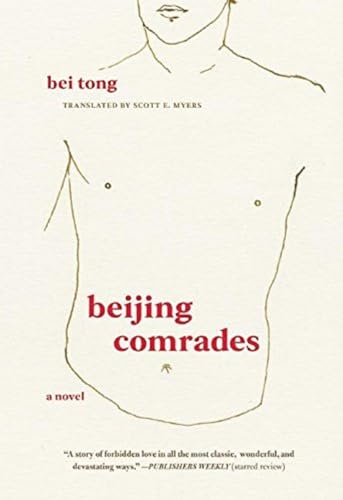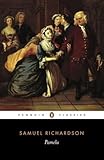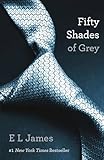
Comrade is a loaded word. Tongzhi, literally “same aspiration,” was the appropriate term of address for an entire generation of Chinese, from influential Party officials and generals to ordinary mothers, street-sweepers, and butchers. Its usage signified membership in a shared, Communist dream of equality and progress. Sometime in the late-’80s, tongzhi took on a secondary meaning for a less public community. It began to mean “gay.”
Unlike many linguistic changes, this shift was deliberate. The new connotation was proposed by Edward Lam, one of the artist-activists who organized the first Hong Kong Gay and Lesbian Film Festival in 1989. In borrowing and reshaping tongzhi, with its suggestion of unity and shared purpose, they hoped to bring gay Chinese people out of the shadows and into the broader community. That same year, the Tiananmen protests began. Then the Berlin Wall collapsed. Tongzhi took off, but the broader community it once symbolized had fallen apart. You have to wonder if activists had begun to feel uneasy about the term by 1990, and the promises it seemed to make.
Among mainland China’s earliest, best known, and most influential contemporary gay novels, Beijing Comrades (originally called Beijing Story) is also China’s first known e-novel. Its pseudonymous author (here called Bei Tong, nothing more than a contraction of the book’s title, Beijing Tongzhi) published the narrative in segments incorporating the suggestions of online readers; the first installment went live in November of 1998, nearly a decade after Tiananmen. The result was a classic of queer consciousness-raising erotica.
It was also the beginning of a vogue. As the ’90s drew to a close, Internet literature — novels, stories, articles, and essays produced online — took off. While fan fiction and other forms of Internet literature (wangluo wenhua) enjoy popularity around the world, nothing compares to Chinese readers’ passion for the form at its height. By 2012, there were more Chinese reading online literature than doing online shopping.
The popularity of Internet literature was ostensibly driven by the threat of official print censorship. More likely it was the result of expanded Web access for a wide variety of readers and writers, communicating readily, quickly, and cheaply. Users’ efforts to create a peer-to-peer network were not so different from the motives of late-’80s gay activists working to establish a community of equals. As one early Internet writer noted, “The real significance of Internet literature is that it gives literature back to the people.”
Like the Gospels, a cultural touchstone of a different stripe, Beijing Story exists in several radically different versions. Despite its outsize popular influence — Beijing Comrades was also made into a 2001 movie by Stanley Kwan — the book has never been officially published in mainland China, or rendered into English. This translation is based on an expanded version prepared by Bei Tong in hopes of a state-sanctioned (guanfang) publication, although the state’s blessing — necessary for mainland publication — was ultimately withheld.
And like the Gospels, Beijing Comrades has its own apocrypha. “There are those who believe that she is a tongqi,” translator Scott E. Myers writes of the author, “a heterosexual woman with the misfortune of unknowingly marrying a gay man. Others suggest that he is novelist and essayist Wang Xiaobo” — despite the fact that Wang Xiaobo was dead when the novel was written in 1998.
There is also this particularly tantalizing explanation: Bei Tong, author of that enduring vision of gay male affection, may be a straight Chinese woman living overseas. (At minimum, a Chinese someone living overseas; Myers remains somewhat ecumenical.) Bored and aimless as a New York expat, Bei Tong has explained, “I immersed myself in the world of the Internet: playing chess, chatting online, surfing porn sites. When I read all the pornographic stories that were out there, my first thought was: F—! What the hell is this? I knew I could write something better.”
And then she did.
Our lovers don’t meet cute — they meet dismissive. Handong, the narrator, is a self-confessed “brat” making his vague fortune in business. Lan Yu, a Xinjiang kid working his way through college, is at first unimpressive: boyish, underdeveloped, with uncertain Mandarin and a “faint anxiety in his eyes.” “Don’t your parents give you money for school?” Handong asks during one of their first exchanges. The irony of the book’s title, at least in this translation, is soon apparent. Our titular lovers are not comrades at all, with the equality of income, status, and purpose that the term implies. Lan Yu asks for a job, and Handong thinks something could be arranged. In the morning, he leaves Lan Yu 1,000 yuan and a note to forget about working and focus on his studies. Lan Yu takes only half, and as a loan. He intends to make good.
Although the novel, in its earliest iteration, was written at the turn of the century, it is intended as a decade-sweeping period piece, beginning in the mercurial 1980s. Handong rhapsodizes on
the many distractions ushered in by the so-called age of reform, the era of primitive accumulation that had promised to transform China from an impoverished nation into a powerful one…In principle even those without powerful family backgrounds could jockey for successes never before thought possible. All you needed was some guts and determination and entry into the get-rich-quick class was yours for the taking.
The plot of Beijing Comrades is, in part, the story of Lan Yu’s self-making under Handong’s watchful eye. Lan Yu works a string of more or less menial jobs that span the range of his worlds: as a tutor, as a construction worker pulling 12-hour shifts in the summer, much to Handong’s amusement. “‘Five-hundred yuan a month!’ I repeated with a derisive laugh. ‘A motel hooker’s asking price is four times that!…Besides, what the hell kind of job is that?’”) Handong offers him instead a series of easy luxuries and interest-free loans, which Lan Yu virtuously resists.

 Erotic fiction is a careful trick to manage: detailed enough to feel fresh and compelling, spare enough to feel — in the reader’s hands — participatory. The characters themselves, particularly Lan Yu, have the blank, Mad Libs quality of much romantic fiction. “He had the clean, soapy smell typical of young men,” Handong considers. “When I looked at his face, I saw not just a handsome young man, but the breathtaking power of youth.” In his afterword, Petrus Liu refers to Lan Yu, perhaps charitably, as a “role model of nonidentity.” Still, this too is the tactic of much romantic fiction, at least since Pamela and Pygmalion: as the audience imagines its personal Lan Yu, Handong shapes one in his own image. Handong’s “nefarious agenda,” as he playfully admits, is “to make [Lan Yu] shake off the cultural and intellectual arrogance of the new world and learn to enjoy the material pleasures of the new one.”
Erotic fiction is a careful trick to manage: detailed enough to feel fresh and compelling, spare enough to feel — in the reader’s hands — participatory. The characters themselves, particularly Lan Yu, have the blank, Mad Libs quality of much romantic fiction. “He had the clean, soapy smell typical of young men,” Handong considers. “When I looked at his face, I saw not just a handsome young man, but the breathtaking power of youth.” In his afterword, Petrus Liu refers to Lan Yu, perhaps charitably, as a “role model of nonidentity.” Still, this too is the tactic of much romantic fiction, at least since Pamela and Pygmalion: as the audience imagines its personal Lan Yu, Handong shapes one in his own image. Handong’s “nefarious agenda,” as he playfully admits, is “to make [Lan Yu] shake off the cultural and intellectual arrogance of the new world and learn to enjoy the material pleasures of the new one.”
As Lan Yu holds firm, Handong begins to wonder “which emotion was stronger, my affection or my resentment.” Affection wins out, as it must. For Handong, Beijing Comrades is a story of slowly softening and falling in love. Although he initially sees his time with Lan Yu as no more than a sexy hobby — “like horse-racing,” as he explains to his distraught mother — he eventually wises up and sees the error of his ways. He swears devotion, just in time for the Year of the Snake.
As a tribute to the ’80s, the novel is sweetly nostalgic. The Teresa Teng cassette sitting on a dresser will bring back memories for Chinese of a certain age, as will chunky Big Boss cell phones and the ideological preciousness of characters’ names — Handong (defend Mao), Aidong (love Mao), and Jingdong (revere Mao) make for formidable siblings. There are references to West Berlin, and the capital’s beautiful blue skies in the summer, when “[f]or three solid months, there wasn’t a bicycle lot in Beijing that wasn’t jam packed.” By the end, as the millennium approaches, our heroes are stepping out of their “burgundy Cole Haans” and slipping into the boudoir.
 “The intensity of two men making love can never be matched by straight sex,” Handong proclaims, and Bei Tong makes you believe it. The book falls significantly higher on the erotica spectrum than Fifty Shades of Gray. The lovers’ sexual adventures are compellingly rendered by Myers, who, by marvelous coincidence, was working at a gay bar in Beijing even as Bei Tong was writing her novel in New York. Like the love affair, his translation begins a little stiltedly, but becomes increasingly assured. Slang is a barrier never fully crossed, but Myers makes capable work of “the local vernacular, which was so legendarily vulgar it had its own title: Beijing Bitching.” It’s a plausible summary of the book, from Lan Yu’s perspective.
“The intensity of two men making love can never be matched by straight sex,” Handong proclaims, and Bei Tong makes you believe it. The book falls significantly higher on the erotica spectrum than Fifty Shades of Gray. The lovers’ sexual adventures are compellingly rendered by Myers, who, by marvelous coincidence, was working at a gay bar in Beijing even as Bei Tong was writing her novel in New York. Like the love affair, his translation begins a little stiltedly, but becomes increasingly assured. Slang is a barrier never fully crossed, but Myers makes capable work of “the local vernacular, which was so legendarily vulgar it had its own title: Beijing Bitching.” It’s a plausible summary of the book, from Lan Yu’s perspective.
Once firmly united, the lovers’ romance is strikingly sweet and normative. “He smiled and pushed his nose against mine as if he were a bear rolling its cub…‘I don’t have to come,’ I whispered into his ear. ‘I just want to hold you.’” The novel finds new tension in an implausible series of disasters: tonsillitis, coma, cerebral hemorrhage; suicidal parent, wicked stepmother; seedy prostitutes, sexual assault; criminal investigations, stints in prison; reversals of fortune, sad parting after sad parting after sad parting. Tiananmen features as a plot point, but only as a winsome threat to poor Lan Yu. Ditto the cringe-worthy red herrings about AIDS. (“If you meet someone new,” Handong warns, “you have to be careful. I don’t want to hear through the grapevine that you’ve caught some kind of disease!”)
For all its sad, socially conscious pillow-talk (“Do you think gay people can have everlasting love?” Handong asks), it would be a mistake to view Beijing Comrades as an accurate chronicle of the Deng Xiaoping era, or as a representative document of gay Chinese romance. The novel is, ultimately, the stylized erotic fantasy of a (straight? female?) expat, with considerable help from online readers, produced 20 years after the fact.
But despite the author’s likely inexperience, Beijing Comrades is filled with confident, jaded insider tips — how to treat virgins, what types of women to avoid. Handong speaks with same assurance on these topics as he does on Deng Xiaoping’s China. “There’s no doubt about it,” he declares, “it’s a hell of a lot easier to seduce a man than a woman.” When it comes to women, the novel’s tone is consistently snide. Characters, plagued by needy girlfriends and manipulative spendthrift wives, complain of “the typical flat ass of most Asian girls” and their friends’ “shrill, housewife bitching.” “When a woman has sex with you,” Handong explains, “it’s because of something you have… or because they want to find someone who will let them be a parasite forever.” When Lan Yu feels jealous, Handong orders him to “Stop acting like a woman. Every little thing makes you so damn suspicious.”
It’s a curious structural misogyny, perhaps the result of a misunderstanding on the author’s part, a belief that men love men because they hate women. As the novel progresses, it becomes increasingly difficult to tell the difference between disdain for a conventional mainstream life and hatred for women, who never come off well. Nor do foreigners, for that matter — neither the “damn Japanese” nor the Western “imperialist aggressors.” The solution is a gay socialist utopia built for two.
In one of the novel’s happiest moments, Handong and Lan Yu driving through the hills, goofily singing the March of the Chinese People’s Liberation Army: “’The hope of our people is on our backs, an invincible power are we!… March on! Our troops march toward the sun! To the victory of the revolution, and the entire nation’s liberation!’ We fell into peals of laughter. Never had a song felt so good.”
The cultural order may have fallen with Mao Zedong, but Bei Tong finds that lost feeling of political and social cohesion in an ideal same-sex relationship, placing all the charged meaning of tongzhi, in its traditional sense, in a gay couple. Created on a website, crowd-sourced in serial, Beijing Comrades is the people’s public fantasy of intimacy. Handong wonders “whether two ‘comrades’ could be lifelong partners, loving one another and taking care of each other til the end.” Beijing Comrades is one generation’s best effort.









